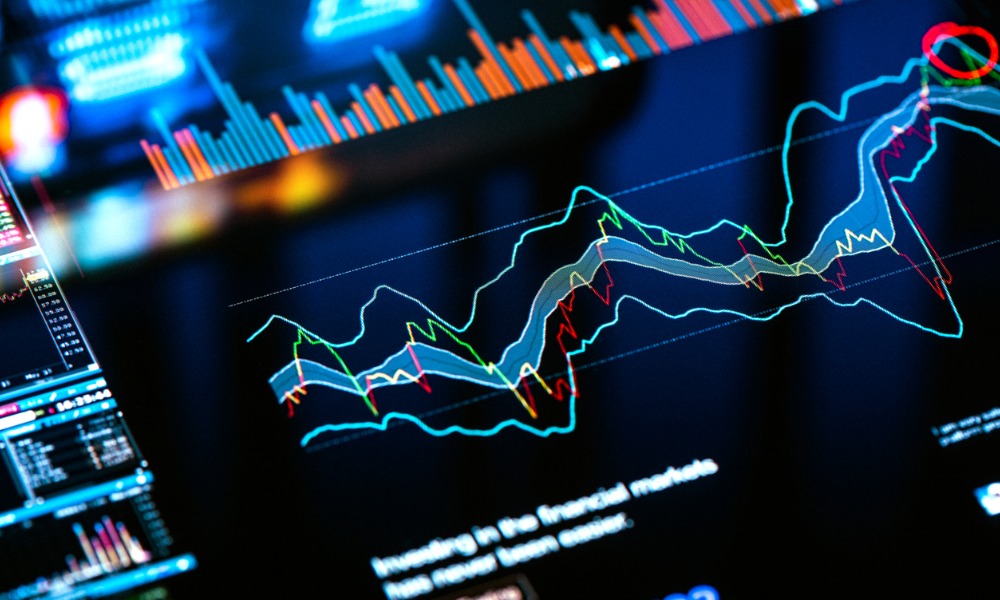2024 election will be contested between two protectionists, how does that risk the global businesses and global supply chains of the biggest tech names?

With Donald Trump and Joe Biden now the presumptive nominees of their respective parties we know that the 2024 US election will be contested by protectionists. In rhetoric and policy both presidents have taken steps to onshore American businesses and undo some of the globalization trends that shaped the past three decades. They have taken particular aim at China, which now is viewed as America’s greatest economic and geopolitical adversary. This new US political consensus and a wider ratcheting up of global geopolitical tensions may pose a meaningful risk to the tech stocks that have returned so well for investors in recent years.
Elliot Johnson sees the risks that this new global paradigm could pose for multinational tech companies. The Chief Investment Officer at Evolve ETFs outlined how competition with China in particular, and wider geopolitical tensions at large, can impact these companies. He explained some of the steps these companies are already taking to protect their own positions and highlighted how asset managers can protect against those risks.
“The concern I have as an investor is looking at this situation and asking if it can get worse, and it can. Based on changes as a result of US elections this year, or because geopolitical tensions are generally higher than they have been in the whole early part of my career up to this point,” Johnson says. “That’s a problem if you’re a massive multinational.”
One of those core problems is an erosion of Chinese market presence for these companies. Johnson notes that AMD was recently denied approval to create a China-specific AI chip. The US semiconductor manufacturer was told by the Chinese government that they could not sell a chip for their market. We saw that Apple’s iPhone sales in China also dropped 24 per cent year over year. Tesla, too, is struggling against a number of strong EV brands now operating in China as well. China has been the most important growth market for many of these companies for over a decade, losing market share there means losing out on meaningful growth opportunities.
Declining presence on the Chinese market, Johnson says, explains some of why we have seen the so-called “magnificent seven” split in performance this year after rising in lock-step in 2023. AI-associated names like Nvidia and Microsoft have continued to rise, while companies that have to ship hardware and sell physical items in China like Apple and Tesla have struggled more.
These companies are already starting to diversify some of the risk associated with China, Johnson says. Apple is moving some of their manufacturing out of China either back to the US or towards friendlier countries in Asia. These companies are working to grow more in other markets to replace China. India has been a significant growth market for many of these companies, and continues to be an area of focus.
Even as these companies diversify beyond China, Johnson stresses the importance of maintaining a presence in that market. While we may see more sabre rattling in the US depending on who wins the election, which could be met by further action from China, trade is essential to keeping tensions from boiling over. That is especially the case in Taiwan, which is both an essential player in global tech supply chains and a constant source of geopolitical anxiety for investors and policymakers alike.
The trouble with geopolitical tension is that it’s a hard thing to trade away. Macro forces that impact the whole global economy are difficult to hedge against. That is all the more true when looking at the tech sector given its crucial contribution to market returns. Johnson continues to advocate for diversification as a hedge, both across asset classes and within tech.
“There are always going to be risks, there's always going to be stuff that we can’t know and we're not talking about right now, that will come from out of nowhere,” Johnson says. “You need to be into enough broad assets to make sure that you've got something there for kind of all these kind of macro factor risks that you could look at. But I think, over analyzing any given one of them, will probably in the long run causes you to make the wrong decision… Pay attention to the news, but don’t overreact and make sure you’ve got appropriate portfolio construction.”



